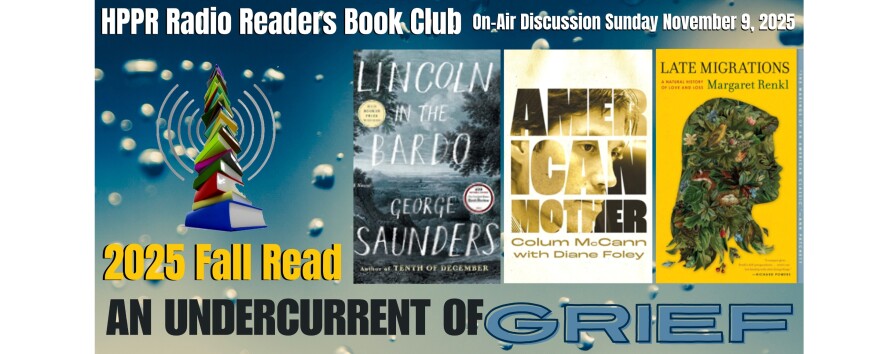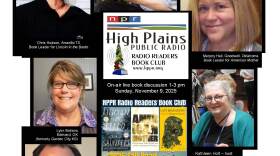Greetings from the Oklahoma Panhandle! I’m Marjory Hall in Goodwell with a BookByte for the Radio Reader’s Series. In The Blue Book of Nebo, his Welsh identity is foundational to Dylan’s worldview. This is more than a detail of characterization or plot. It represents one of the themes of the book and a great deal of the author’s life’s work.
Most of Manon Steffan Ros’s work is written in Welsh and only later, like The Blue Book of Nebo, translated into English. The ancient Celtic family of languages, Welsh, Cornish, Breton, Scottish Gaelic, Irish, and Manx are far from dead, thanks to the tireless efforts of social activists, writers like Ros, Colm Tóibin, and Neil Gunn; musicians like Enya and Julie Fowlis; bands like Runrig, Lùnasa, Clanad and the Chieftains; and groups like Riverdance that sparked a worldwide interest in Irish dance. There is a bone-deep love of their heritage that inspires the efforts of all who work to preserve and share their indigenous Celtic culture in the aftermath of prolonged colonial attempts at cultural genocide.
In The Blue Book of Nebo, Ros advocates not just for the preservation of one culture, but for the preservation of all the simple components of life, deep in our innermost selves, that make us who we are.
When Rowenna first suspects that there are dramatic changes coming in her life, she stockpiles foodstuff and supplies, but more importantly, she gathers the vital expertise that people have been steadily losing in direct ratio to the world’s increasing industrialization. With nobody but herself and Dylan to harvest food, build shelter, and provide safe water, Rowenna arms herself with this knowledge and more from, ironically enough, the internet. Once she has harvested the wherewithal to provide for her small family, Rowenna never expresses the least nostalgia for the flood of electronic information that mesmerized so many people before The End.
Although feeding and housing themselves requires more manual labor than in their previous life, Rowenna recognizes that the new simplicity of the world is refreshing. She finds pleasure in the ways she and Dylan have built a life for themselves. In the new world where there is “no space for lies,” Rowenna has come to know her son’s essential resilience and to admire the natural way he shoulders heavy responsibility (6).
The End resulted in Dylan’s childhood being like it might have been for his Welsh ancestors. He possesses the tough resourcefulness and strength those ancestors needed to survive. In the simplicity of his life, Dylan finds it natural to name a pet hare in Welsh and share the language with his little sister. In his deepest grief, it is Welsh in which Dylan inscribes his pain. When his life has been pared to the essentials, it is the ancient mother tongue that arises from Dylan’s soul.
Despite all they have lost, Rowenna and her son are at peace. When the question is raised of whether civilization will somehow reignite or if mankind is waiting to be saved, Rowenna has no immediate response. That comes later when she acknowledges that she is fearful of losing the life she now shares with Dylan, afraid of returning to “gray days of technicolor screens” and of people casually ignoring one another (144). She reflects that she has never before felt “so satisfied,” that the physical world is just as it had been but that she “can see it all now” (96, 97).
Being abruptly dropped into a preindustrial lifestyle has made Rowenna strong, “[l]ike a warrior” or a Celt sturdy enough thrive in the severe Welsh countryside (149). She and Dylan agree that a return of the world as it was will be a bad thing, and the first signs of that return leer at them “like a fiend” (150).
Mindful preservation of one’s cultural tradition, of the old ways of one’s ancestors, can provide a type of sanctuary in contemporary life. The vitality of indigenous cultures—ancient words, arts, and traditions—is a refuge from the relentless press of spiritless modernity.
I’m Marjory Hall with another Book Byte for the Radio Readers.










